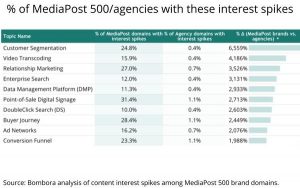As we jump into the new year – and more people jump into freelancing – there are a lot of questions. One big one: should freelancers charge late fees? I’ve been freelancing for half a decade now, and have struggled with this question from day one. In this article, I’m going through the arguments for and against charging late fees as a freelancer. I can’t tell you the right answer for your business. It’s up to you – but I want to share the thought process, good and bad.
For full disclosure: my freelance contracts have late fees written into them. I started this practice softly in 2019 but put it in all my contracts in 2019. I explain why below.
What are late fees?
Really quickly – here’s how I define late fees: an additional cost, specifically associated with whether a client pays on time. “On time” is based on whatever terms you set up and agree to in your contract (net-15, net-30, etc.). Further, these costs are typically not cumulative, meaning you don’t charge late fees on any previously issued late fees. For example: If the bill is $ 100 and the late fee is 1% per month, then the fee is always $ 1 per month regardless of how many months late the payment is.
This is how I understand late fees and have described them in this piece. Some companies see them differently (for example, charging cumulative fees), but I disagree with that practice.
Reasons to charge late fees
The core reason to charge a late fee is simple: money. That breaks down into three arguments.
1 – Cash flow
Businesses live and die on cash flow. The same goes for freelancers. If you don’t have money coming into pay yourself and your expenses, you will either need to find a job or take out debt to pay ongoing expenses. Neither of those situations are pleasant. So if a client pays late, the additional fee is compensation that can be tucked away to help cover expenses should the next payment also be late.
2 – Motivation
A contract is an understanding between two parties. That’s really it. And one of those understandings is that the client agrees to pay by a certain date. Now, no one likes doling out money. So the threat of a late fee can be a powerful motivator for someone to pay on time.
This was my original justification for implementing late fees. I had a few clients in the early days of my business that routinely paid late. The follow ups took time, it felt uncomfortable, and I wanted to minimize it. As soon as I put a late fee on my contract, people either paid on time or right when I did the first follow up.
3 – Flexibility
Fundamentally, a late fee is a penalty for breaking a contract term. So you need to weigh that in your mind. However, simply having the clause does not mean you have to activate it in every scenario, which affords you room to be human about the whole thing. For example, I’ve had a late fee clause in my contract for two years now, but never once actually charged late fees. It’s motivational for clients to pay on time, but they also know that I’m not going to gouge them if payment comes in a day or two late due to a processing error.
As more big businesses get into the freelancing game, you might find that late fees are a non-issue with most of your contracts. And if you’re concerned about adding them, consider this: nearly every major corporation – from B2B software to your phone bill to your landlord or mortgage lender – charges late fees or interest on late payments.
Reasons freelancers should not charge late fees
While I charge late fees in my contracts, I can see the reasons why you may not want to. Full disclosure: I disagree with these perspectives and feel having late fees in your contracts is a good thing. But here’s how I understand the arguments against charging late fees.
1 – Lawyer issues
A lawyer may hold up contract negotiations based on a late payment clause. That could mean the wording of the clause or the existence of the clause in the first place. This could cause issues where a client may choose to find someone else to work with cause your negotiations are taking too long.
In my opinion, stand your ground. If lawyers are taking a long time to review, you can communicate that with the client. Sometimes, they can nudge their lawyers along – particularly for a late payment clause, which is typically written in fairly common language.
2 – Client deal breaker
Some clients may look at a late fee and decide it’s a deal breaker for them. In short: you could lose a prospect or not close a deal.
In my opinion, this is actually a reason to charge late fees. If someone is going to balk at you for having a very normal contract clause, they may not be the type of client you want to work with. Of course, it stings when it’s a big contract. However, there are many ways to find new freelance clients.
3 – Personal brand issues
It’s one thing to have late fees in your contracts. It’s another thing entirely to enforce them. Having the fee and then requiring a client to pay it can cause issues where an angry client badmouths you to their network.
I don’t think these issues should deter you from having a late payment clause in your contracts. Instead, these are issues to be aware of when it comes to how to administer the fee. First off, there’s usually a documentation process where you remind clients about the payment before it’s due, so they have every opportunity to pay the invoice on time. On the day it’s due, you can even send another reminder warning them that late fees may apply. Then, in most professional services like freelancing, there is a short grace period after the payment due date. Sometimes, bank transfers can take 3-5 days, especially from bigger corporations. That’s not something you can really hold over your client.
What about discounts for upfront or early payment?
Some businesses have a practice of offering automatic discounts if you pay early or pay a large invoice up front.
While this can help with initial cash flow, I don’t recommend it for freelancers. This practice typically stems from ultra-high margin products or SaaS platforms that hit profitability once you’ve been a subscriber for more than a year. In that case, offering a discount to lock you in is highly profitable in the long run. For freelancers, giving a discount for someone to pay up front may give you a short term cash boost, but it’s at the expense of long term profits. Further, there’s a risk of devaluing your work. If clients learn you offer a discount for early payment, they may also try to get discounts in other ways.
That said, I wouldn’t necessarily rule the possibility out. It can be effective if you need short term cash, for instance, and should be evaluated on a case by case basis. You can also do this for a larger contract if you want the money up front so you can focus on the work instead of worrying if the invoice will be paid.
Putting late fees into your contract
When you add late fees to your contracts, they should be clearly marked. However, they don’t need to be highlighted and put everywhere. They can simply be included, on their own line, in your contract terms and conditions. Typically, they’d go near your payment terms. In a feature interview I did with three experienced freelancers, one shared his advice that freelancers should never go beyond Net-30 payment terms. That way the client agrees to pay you within a month of being invoiced, which should help keep your cash flow in check.
Late fees are one of the more contentious issues among freelancers. They can feel scary to charge – and enforce. However, the reality is that the business world operates on the assumption that people pay their bills on time. While we always assume good faith, a late fee clause can help ensure people follow contract terms.
Business & Finance Articles on Business 2 Community
(41)






